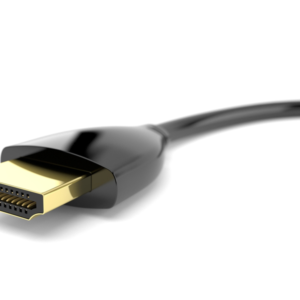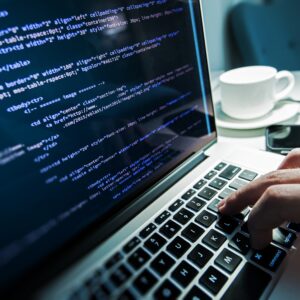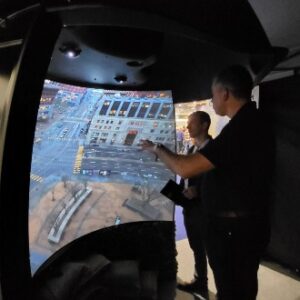The pandemic has unmasked the technological inequalities plaguing the U.S., but there are ways the AV industry can get plugged in and help to bridge that gap
In a June 2020 Opinion column in The Washington Post, Katrina vanden Heuvel highlighted the myriad ways that the COVID-19 pandemic has brought the digital divide once again into full focus. Pulling together impediments — from the FCC decisions in relation to telecom monopolies to the societal ills that disproportionately affect low-income and rural Americans as well as U.S. households of people of color — to internet access and by extension technologies critical to moving through the current crisis, vanden Heuvel firmly states, “The United States has failed in the equitable delivery of this public good. The disparity will almost certainly lead to further inequity. No American should suffer the indignity of searching for Internet. Starbucks WiFi is not a social safety net.”
Within the AV industry, there is a segment of AV professionals attempting to bridge this digital divide by actively engaging their communities and serving as architects of solutions that go beyond the provision of hardware by seeing the problem as a social justice issue. Recently, Integrate Baltimore, a technology non-profit led by AV pro Ernie Beck that seeks to connect Baltimore’s students and professionals with opportunities and access to the AV/IT industry, formed a partnership with the Baltimore Digital Equity Coalition (a consortium of 50 organizations that formed in the wake of COVID-19 to offer “a rapid response” to the lack of digital access in the community) to distribute 2,000 devices that will offer digital access as the pandemic continues to impede access to online learning and telehealth services.
“At the outset of this pandemic it was estimated that somewhere near 70,000 households in Baltimore City lacked access to an internet-connected device,” Beck says. “The Baltimore City Public School System (BCPSS) has certainly jumped into action purchasing close to 20,000 Chromebooks as of July, but as you can see, that doesn’t fully address the need. The 2,000 devices number is in part based on the demand of requests the coalition partners are getting. Some coalition partners have hundreds of device requests from surveying the communities. We are in a stockpiling mode until we reach a critical donation mass, at which point we will distribute to the community through our City-based coalition partners. Donations will be based on a few factors: age, purpose, date of original request, type of request (i.e., multiple devices or just one). Part of the reasoning behind waiting to distribute is to see where the remaining needs are. The BCPSS is focusing heavily on student age children, but who is taking care of the adult learners, veterans, at risk young adults? That’s the type of questions we are hoping to answer and steer our distribution efforts towards.”
During a recent discussion on AVNation’s AVWeek podcast, Chris Hope, the executive director of The Loop Lab in Boston, a non-profit workforce development program dedicated to bringing adults of color and women into the AV industry, underscored why the digital divide is just as much a social justice issue as much as it is a technology one. Invoking two great congressmen and civil rights activists, Elijah Cummings and John Lewis, both of whom have left rich histories of advocacy and resistance in the wake of their recent passings, Hope urged listeners to get in touch with their state representatives.
“People like the late great Elijah Cummings and people like John Lewis, who really advanced this in policy, write to your local senator, write to your local congresswoman and congressman about the need for more funding in education, especially in the fact that we’re now living in a time where you need a computer, you need tech gear to have access to classes,” Hope says. “I am appalled when I hear these stories from educators saying that they don’t even have enough equipment for their children to be able to attend school online. That is unacceptable. That should be deplorable.”
Hope later sets a tasks for the AV industry: “I think that people within the AV industry really have to take the mantle of this and say, ‘How can we create more access?’ whether through finances, volunteering, as some of these organizations [where] it might make even more sense to provide some [of these] services. If you have the tech services that you can give, maybe you can do in-kind service provision. But either way, there’s always something that folks can do. The bigger question then becomes is, is this something that you really feel is a human right? Which I believe access to technology is a human right in the 21st century. But if you feel like this is a human right, there has to be, as Dr. King says, a fierce sense of urgency to have people move into action, however they do so within their own realm.”
Hope is not alone is his thinking. Beck echoes him when he tells AVNation that he believes that we need to treat the internet as a public utility, especially as “we have built our entire economy around the internet; from online learning, to working, to paying bills, to telemedicine, to entertainment, it’s an intrinsic part of our societal fabric.”
“What the pandemic has exposed is not only food insecurities of many households who relied on getting meals from public schools/facilities, but information insecurity,” Beck continues. “I believe if the U.S. wanted to, on a federal, state, and city level, they could prioritize funding of grass-roots organizations that are in the field doing the work. They could put more pressure on big telecom companies to provide low-cost high-speed internet services for low-income individuals. They could make sure every student has access to a laptop so when they’re sick or need to quarantine they don’t fall behind. Political candidates at every level of elected office would ideally make digital equity a cornerstone of their campaigns.”
Integrate Baltimore, the Loop Lab, and Baltimore Digital Equity Coalition are great organizations for AV professionals to turn to if they want to engage with the problem of and activism around not only bridging, but also systemically dismantling, the digital divide, which seems to be growing even as it is under a microscope. Monetary and devices donations are a great start, as Beck and Hope suggest, as wells as volunteering time to these organizations and many others in satellite channels (i.e., IT, networking, telehealth, etc.) by offering your time as a mentor or simply as a driver to get devices in the hands of those that most need them. Beck believes we can all take it a step farther.
“It takes dedicated professionals volunteering their time and expertise to non-profit organizations, many of who don’t have the financial means to hire a professional,” Beck says. “Donating money is great, but many professionals in these markets are extremely adept at solving complex challenges through technology. If our companies within the industry made social intrapreneurship an important part of the company culture, and setup frameworks for community involvement, we would see a profound impact. Once companies get started community initiatives, employees report having increased sense of teamwork, career fulfillment, connection to the community, and generally have a more positive outlook on the company culture.”









